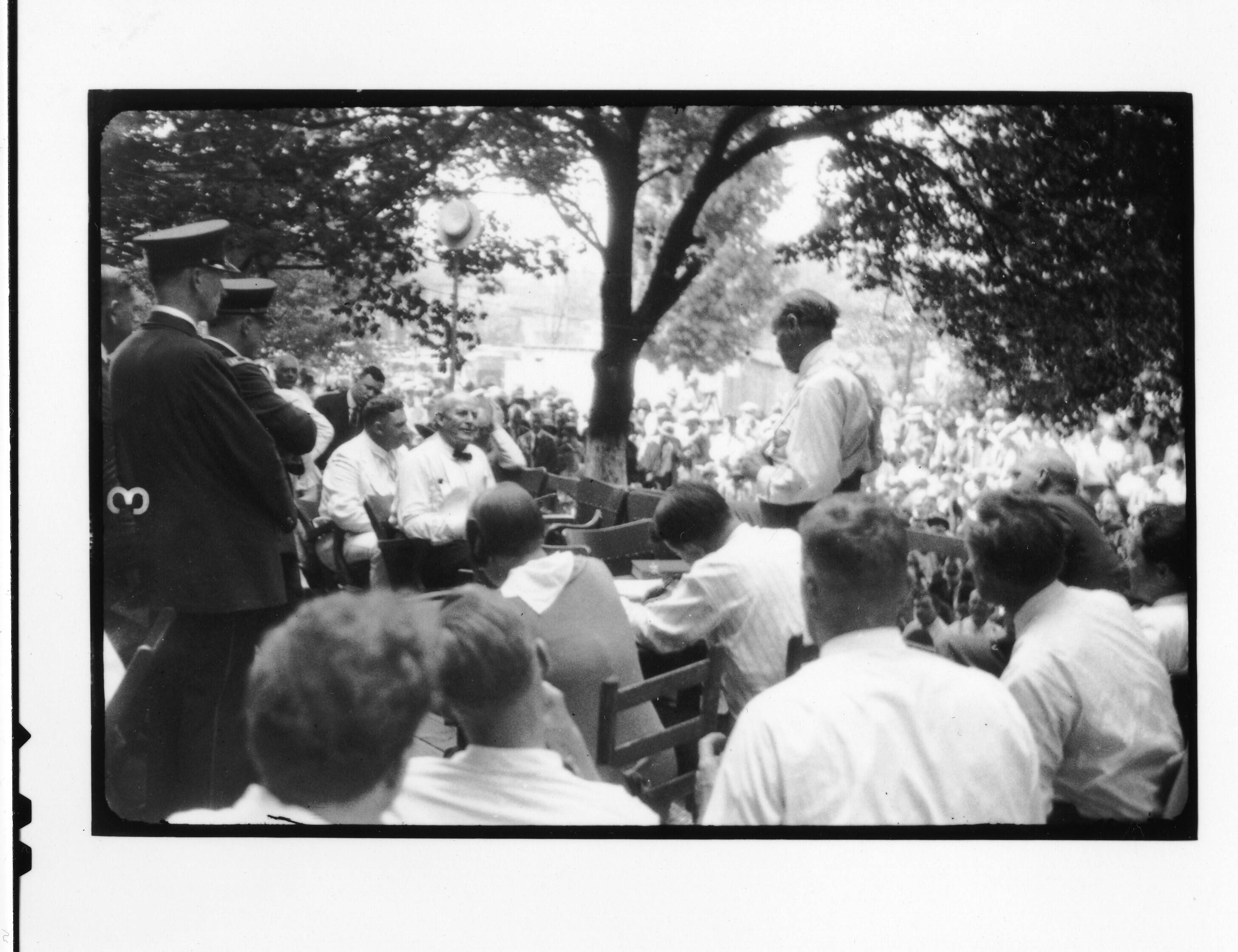Palmer Hotz Endowed Lecture Series in the History of Science
Pulitzer Prize Winner to Deliver Hotz Lecture on 'Scopes Trial' Centennial
Thursday, March 6, 2025, 5:15 p.m.
Gearhart Hall Auditorium (GEAR 26)
As we approach its 100-year anniversary this July, the cultural salience of the “Scopes Trial” endures.
A misdemeanor legal case that was purposely staged into a contentious drama became a blazing emblem for America’s power struggle between individual freedoms and majority opinion.
“Even when I walk into a high school biology class, most students have heard of the ‘Scopes Trial,’ and they all have their own ideas on why it’s still important today,” said Edward Larson, University Professor of history, Hugh and Hazel Darling Chair in Law at Pepperdine University and expert on the case. “I am convinced it’s the best-known trial in American history.”
Larson will discuss the trial’s enduring legacy at the U of A as part of the Palmer Hotz Endowed Lecture Series in the History of Science, hosted by the Honors College and the Fulbright College of Arts and Sciences at 5:15 p.m. Thursday, March 6, in the Gearhart Auditorium (GEAR 26).
“Join Fulbright College, the Honors College and the Hotz family for an evening with a true master of interdisciplinary research,” said Lynda Coon, dean of the Honors College. “From the history of science and law to religion and the cultural spectacle of the courtroom, Ed Larson will bring the ‘Scopes Trial’ to life and illuminate its enduring relevance.”
The “Scopes Trial,” officially titled The State of Tennessee v. John Thomas Scopes, was a 1925 legal case that captured national attention. It began when a high school teacher, John Scopes, was accused of violating Tennessee’s Butler Act, which prohibited teaching about human evolution in public schools.
What started as a test case quickly escalated into a cultural spectacle, pitting two titans of American thought—Clarence Darrow for the defense and William Jennings Bryan for the prosecution—against each other, according to the University of Tennessee Knoxville collection “Of Monkeys and Men: Public and Private Views from the Scopes Trial.”
Larson examined the famous “Monkey Trial” using the University of Tennessee Knoxville collection for his book Summer for the Gods: The Scopes Trial and America's Continuing Debate Over Science and Religion (Basic Books, 1997), which won the Pulitzer Prize in 1998.
The Palmer Hotz Endowed Lecture Series in the History of Science was established to honor Dr. Palmer Hotz and his dedication to the teaching and practice of science. The series focuses on the history of scientific thought, aiming to foster interdisciplinary dialog. The endowed lecture series brings distinguished speakers and visiting professors to campus to present to and interact with students and faculty.
